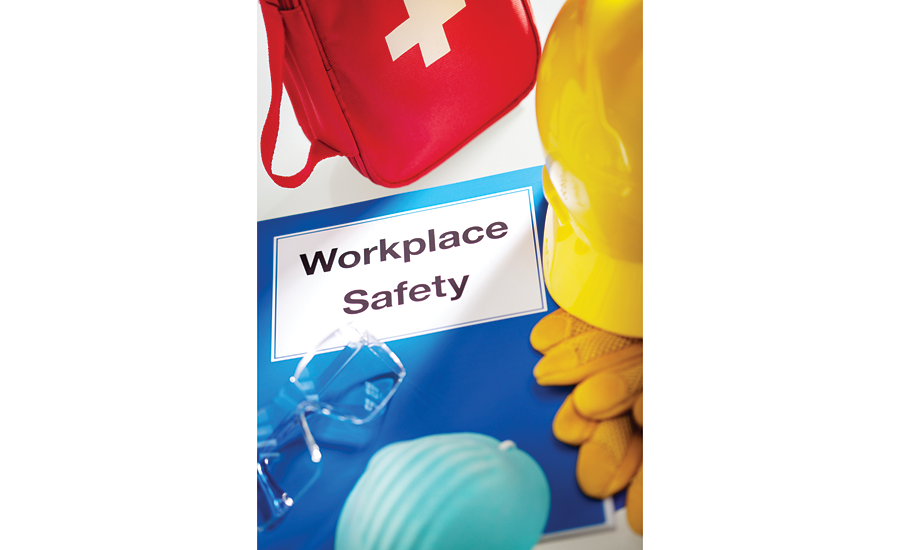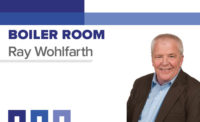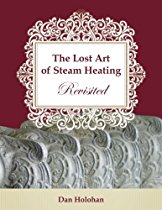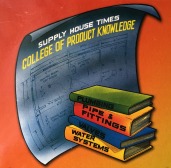If you perform an Internet search for boiler accidents, you would find page after page of shocking stories and pictures. All these images and stories make the unknowing public wary of boilers, thinking they are dangerous. However, I believe heating with boilers is one of the safest methods.
People have much higher odds of being exposed to carbon monoxide from a malfunctioning oven than being the victim of a boiler accident. In fact, the Centers for Disease Control and Prevention says unintentional carbon monoxide poisoning caused an average of 430 deaths per year during the 1999-2010 period.
The following are the top five causes of boiler accidents:
| Accident cause Incidence percentage: | |||
| Operator error/poor maintenance | 46% | ||
| Low-water cutoff | 33% | ||
| Limit controls | 4% | ||
| Faulty design/fabrication | 3.7% | ||
| Improper installation | 2.3% |
In doing research for my books and seminars, I found the majority of boiler accidents could have been avoided by simply doing routine maintenance on the units by someone trained on boilers. This belief must be shared by the smart people at the American Society of Mechanical Engineers because they require maintenance to be performed on boilers in the 2009 and 2012 versions of its Controls and Safety Devices for Automatically Fired Boilers 1 code.
If your state follows ASME CSD1-2009 or 2012, it requires boiler maintenance to be performed on a regular basis. This code covers boilers between the capacity of 400,000 Btuh and 12,500,00 Btuh. The CM section of the code deals with the maintenance of boilers.
Section CM-110 calls for a maintenance program to be performed and the results of the tests logged in a written record such as a boiler log or service report. The code further requires that any defects found shall be brought to the attention of the boiler owner and immediately repaired.
Section CM-120 stipulates the individual performing the test and inspections shall be trained and familiar with the equipment and be capable of determining if the equipment is in an as-designed operating condition.
Technician training
Since the majority of boiler accidents are a result of human error or poor maintenance, how does someone become trained on boilers and burner maintenance?
- Read 15 minutes a day. The first journeyman I worked with was a talented technician and wise man. He told me that to be successful in the industry, I should read 15 minutes a day about the industry. I still do it today.
- Equipment manufacturers. Many of the boiler and burner manufacturers have training classes at their factories. Contact the equipment representative to inquire about the training schedule and fee.
Most manufacturers also have guides and booklets featuring some helpful information and tips. Download a copy of U.S. Boiler’s “The Heating Helper” through its Contractor Toolbox (http://tinyurl.com/usboiler-contractor-toolbox). It is a great resource; you will love it. And Caleffi publishes an excellent technical magazine on hydronic systems, called “idronics,” that is very informative (www.caleffi.com/usa/en-us/technical-magazine).
- Local training. Manufacturers representatives or wholesalers are other excellent sources of local training for technicians or boiler operators.
- Trade organizations. Many organizations such as the National Association of Oil and Energy Service Professionals (www.thinkoesp.org), the Radiant Professionals Alliance (www.radiantprofessionalsalliance.org), the National Association of Power Engineers (www.powerengineers.com) and the RefrigerationService Engineers Society (www.rses.org) have local chapters with educational seminars by regional experts.
- Online training. Trade magazines such as pme’s sister publication Plumbing & Mechanical (www.pmmag.com) have regular training webinars available online, many free of charge to the contractor. Many manufacturers have online seminars that can be downloaded and viewed on your own computer.
- Trade magazines. Industry magazines also feature articles written by some of the sharpest people in the industry. These industry experts may be able to answer the questions you have or direct you to a location to find the information you seek.
- ASHRAE. The local chapters of ASHRAE have training sessions at regular meetings as well as multiple training sessions at the annual trade show. The AHR Expo is an amazing show for anyone in the industry to attend. The 2017 show will be held Jan. 30-Feb. 1 in Las Vegas (www.ahrexpo.com).
- Visit the local library. The main library in my town keeps copies of the codes used in boiler design and installation. They could be a great source of information.
- Unions. Local trade unions for operating engineers (International Union of Operating Engineers, www.iuoe.org), plumbers and steamfitters (United Association, www.ua.org) have regular training sessions and some are open to nonmembers.
- HeatingHelp.com. The iconic website operated by pme columnist Dan Holohan and his daughter, Erin, is the go-to place for answers on any heating subject. The Wall features some of the best brains in the industry.
- Offer to teach a class. Nothing will challenge you more than the homework required to teach a class. If you teach a 45-minute class for your fellow technicians, you will need to spend about 10 times that long in preparation.
- Ask an old-timer. The old-timers like myself have several decades of experience you could tap. All you have to do is ask.
- Community colleges. Some local community colleges have a basic refresher course for electrical systems. The majority of all boiler service problems will be diagnosed by following the electrical schematics. The course could make you a better technician.
- Books. I know it is old school to actually read a paper book but you can find a whole trove of information in them. Plumbing & Mechanical has a wide assortment of books for purchase on its online bookstore, as well as www.heatinghelp.com. Two books I would highly recommend for heating systems are “The Lost Art of Steam Heating” by Dan Holohan and “Modern Hydronic Heating” by pme columnist John Siegenthaler, P.E.
Whenever I travel, I like to stop by used book stores to find books about the industry. You will be amazed at the reference books you can find for only a few dollars.
There is no lonelier feeling than when your clients are standing over your shoulder in the boiler room while you try to diagnose an old heating system asking when the heat will be on and you have absolutely no idea why the boiler is off.
Try to learn something new about the industry every day.
This article was originally titled “Don’t be a statistic” in the April 2016 print edition of PM Engineer.







